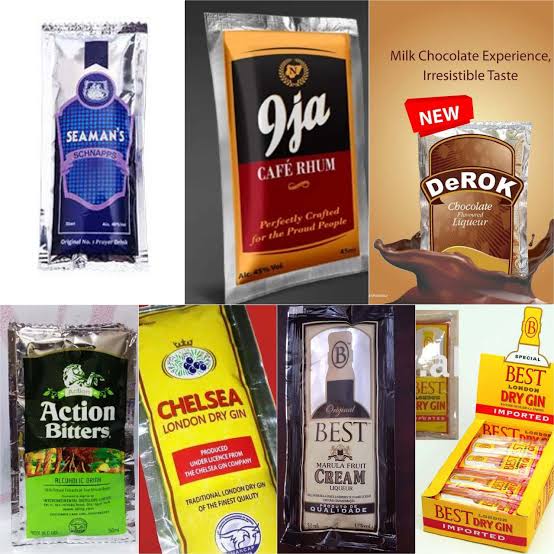Public health advocacy groups have thrown their weight behind the National Agency for Food and Drug Administration and Control (NAFDAC) over its ban on alcoholic beverages sold in sachets, PET bottles, and glass bottles of 200ml and below, describing the regulatory action as a “long-overdue intervention” to protect vulnerable Nigerians.
In a joint statement on Sunday, the Network for Health Equity and Development (NHED) and Corporate Accountability and Public Participation Africa (CAPPA) said the ban, which targets products that make highly potent alcohol cheaply and easily accessible, is crucial to safeguarding children, youths, and other at-risk populations.
The groups highlighted that the packaging and aggressive marketing of sachet alcohol have contributed to rising addiction, social disorder, road accidents, and non-communicable diseases across the country.
“They [NAFDAC] initially allowed manufacturers a multi-year phase-out period, which ends in December 2025, to exhaust existing stock,” the statement read. “Yet some producers flagrantly continued production beyond the deadline.”
The advocacy organisations rejected claims by the Manufacturers Association of Nigeria (MAN) that the ban would trigger massive investment losses and the retrenchment of over 500,000 workers.
“The manufacturing process of these products is largely mechanised and requires limited human effort.
“The so-called job losses are exaggerated and unverifiable. Such scare tactics are a familiar strategy used by alcohol and tobacco corporations globally whenever governments attempt to regulate harmful products,” the groups said.
NHED’s Technical Director, Dr Jerome Mafeni, emphasised that public health must take priority over profit.
“The long-term social and economic costs of alcohol-related harm far outweigh any short-term profits. Nigeria is already grappling with rising alcohol-related violence, reduced productivity, escalating healthcare costs, and a growing addiction crisis among young people, particularly in poor and marginalised communities targeted by sachet alcohol products,” he said.
Dr Mafeni further condemned the sale of high-concentration alcohol to children for as little as N100, calling it “unacceptable” that manufacturers prioritise profit over the safety and well-being of Nigerians.
The ban, first announced in 2024, comes as part of ongoing efforts by NAFDAC to curb harmful alcohol consumption, especially among minors, and to tackle the public health and social challenges associated with cheap, high-strength alcoholic products.
Do you want to share a story with us? Do you want to advertise with us? Do you need publicity for a product, service, or event? Contact us on WhatsApp +2348183319097 Email: platformtimes@gmail.com
We are committed to impactful investigative journalism for human interest and social justice. Your donation will help us tell more stories. Kindly donate any amount HERE




